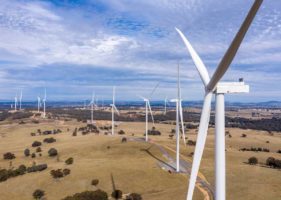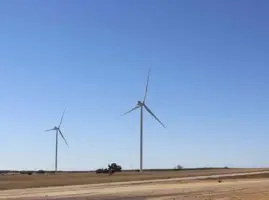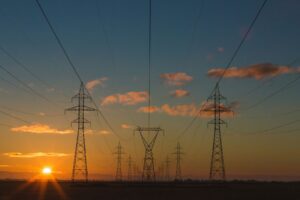The Clean Energy Regulator has urged Australian companies to tighten up their emissions reporting, including through the voluntary surrender of renewable energy certificates, as net-zero deadlines edge closer and as mandatory climate-related financial disclosure looms.
The call comes as the CER this week releases its latest report on Corporate Emissions Reduction Transparency – a voluntary program that measures the progress on climate commitments of 25 large Australian companies across a range of sectors.
According to the report, the voluntary surrender of large-scale renewable energy generation certificates, or LGCs, within this group of 25 companies has jumped significantly over the past year, up 274% compared to the year before.
“I expect more companies – big and small – will start to cancel renewable energy certificates as a tangible way of proving they have switched to renewable electricity,” said CER chair David Parker on Monday.
“We know there is growing interest from the community, shareholders, investors, regulators, and supply chains in the progress companies are making to reduce emissions.”
As RenewEconomy has reported, how Australia’s big corporations go about meeting and reporting their climate and renewable energy targets can vary greatly.
LGCs are created per megawatt hour (MWh) of generation produced by an eligible renewable power station, like a big wind or solar farm.
Once generated, the LGCs can be bought and sold with or without the electrons created alongside them. But the gold standard for companies promising to source their electricity from renewable energy is to buy both the power and the LGCs, and then surrender the LGSs to the CER so they are removed from the market.
As CER chair David Parker notes, the surrender of LGCs serves as proof positive that companies are actually buying renewable electricity from large-scale wind and solar generation projects, rather than just buying certificates that are being traded on the market.
But Tristan Edis from Green Energy Markets says the latest CERT report presents an incomplete picture of how Australian companies are faring on their emission reduction commitments.
Edis says that according to Green Energy Markets’ own comprehensive database, voluntary surrender of LGCs is progressing slower that it should be, to keep with corporate 100% renewables commitments, particularly those targeting net-zero by 2025.
“While the Clean Energy Regulator points out that surrender of renewable energy certificates or LGCs is up 274% on last year, it fell noticeably short of what Green Energy Markets estimated should have occurred if corporates were making steady progress towards their renewable energy commitments,” Edis told RenewEconomy.
“While often the 100% renewables commitment by corporates is to be achieved by 2025, given a number are receiving LGCs right now, we would have expected greater levels of incremental voluntary surrender progress in the years leading up to 2025.”
Edis says that some companies that have announced large renewable energy procurement deals, and received LGCs, are not surrendering them. The concern, says Edis, is that some companies might take the financial decision to on-sell those LGCs instead.
Another concerning trend revealed in the CERT report is that companies are choosing to surrender international carbon units, up 65% from last year, while Australian carbon credit unit (ACCU) surrenders are down 10%. This suggests more companies are taking up the cheapest options to offset emissions, rather than opting for genuine carbon reduction.
Terrible chart showing a terrible trend in the Corporate Emissions Reduction Transparency report 2023.
Use of international carbon units (representing the vast majority of offsets used) is up 65%, while Australian sourced offset use is down 10%.
https://t.co/uMa3mvIWY2 pic.twitter.com/tlPTARdp3q
— Michael Mazengarb (@MichaelM_ACT) July 10, 2023
Parker says, however, that the true value of the CERT is that it provides a framework for companies to present their climate related commitments, progress and net emissions in one place.
“With the Treasury consulting on mandatory climate-related financial disclosures for large companies, now is the time for companies to participate in the CERT report and improve their emissions reporting capability,” he said on Monday.
Of the 25 participating companies, 20 have commitments to reach net zero emissions by 2050, including six that are already carbon neutral. Thirteen others have commitments to reach 100% renewable electricity use by 2030.
Participation in the CERT report is voluntary and open to companies reporting above 50 kilotonnes of carbon dioxide equivalent under the National Greenhouse and Energy Reporting Act 2007.










